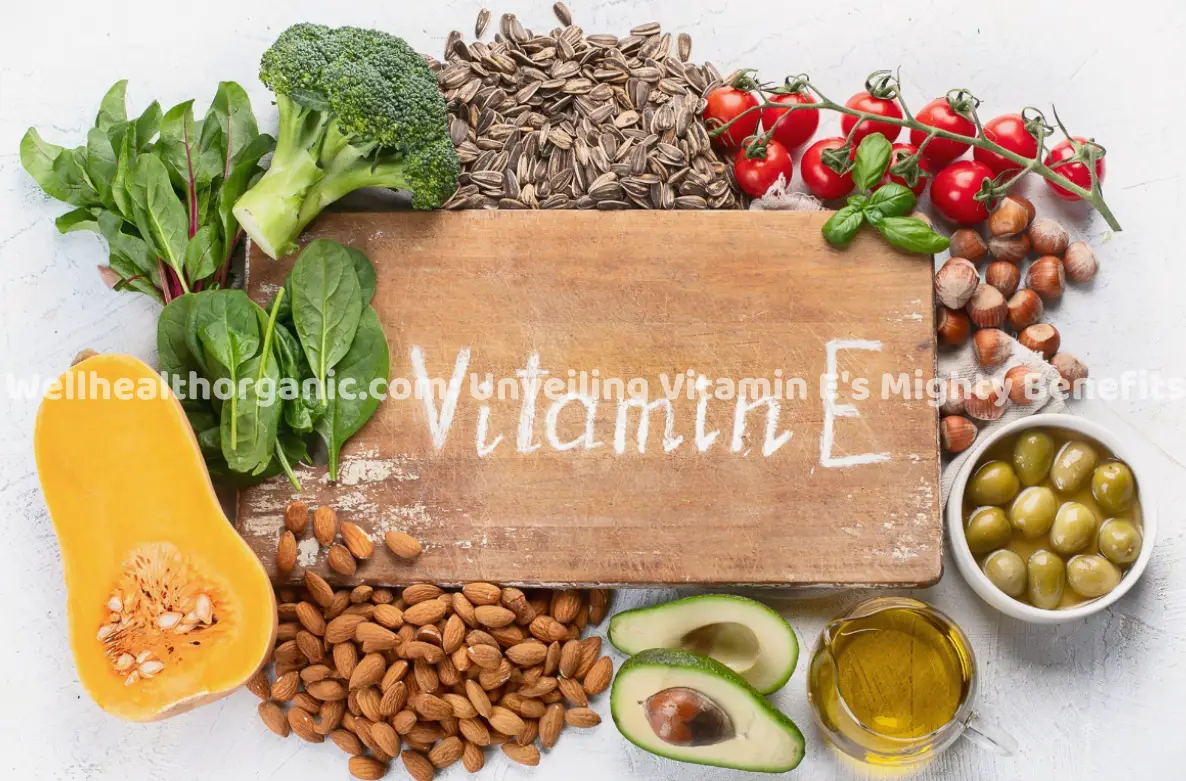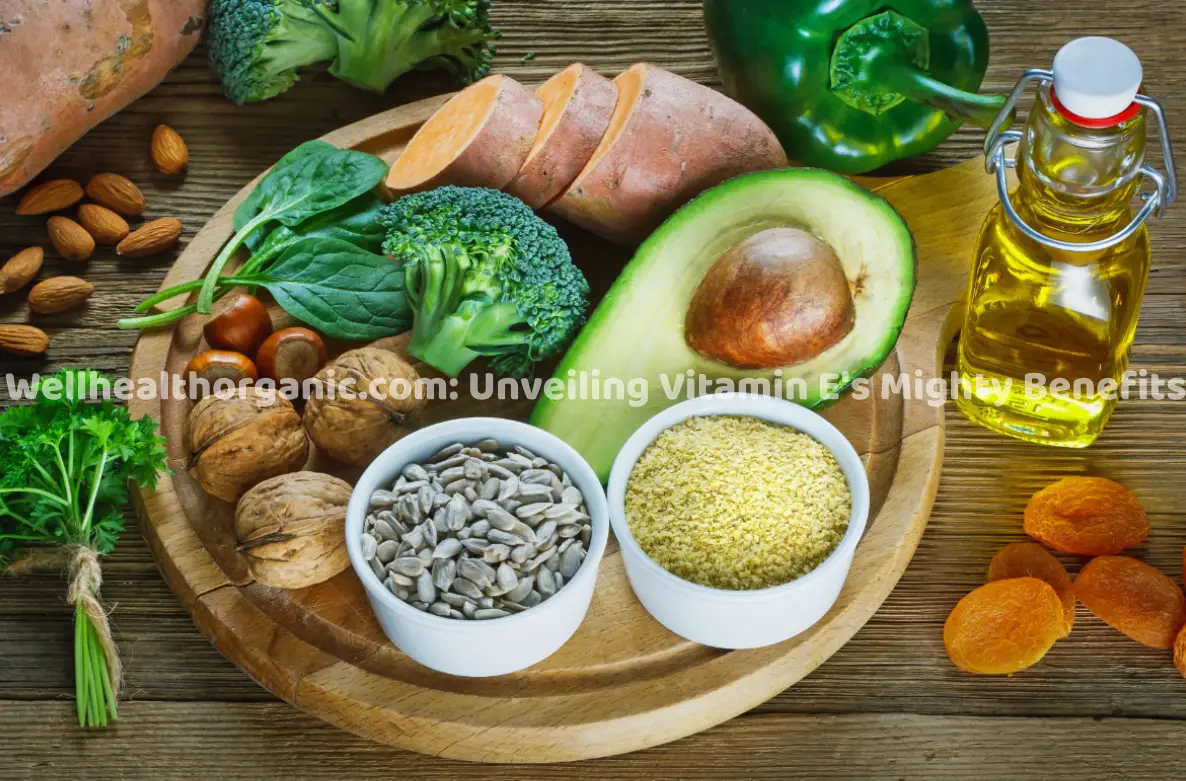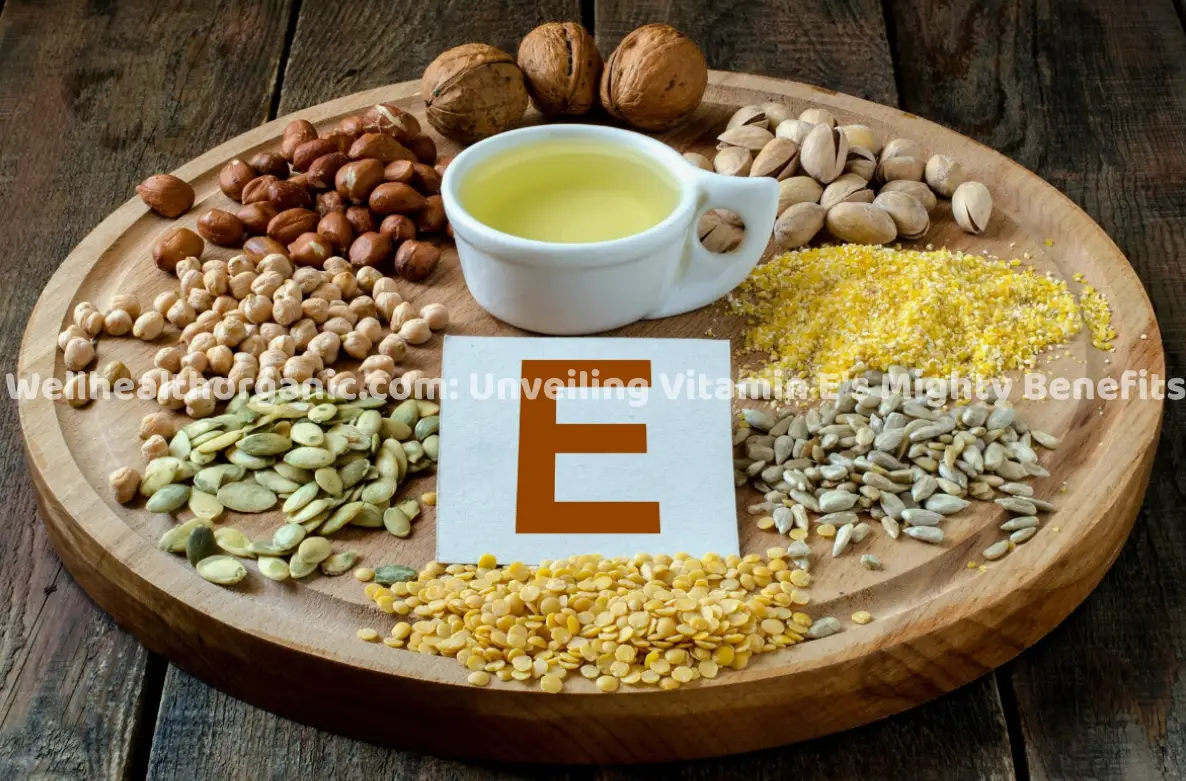Vitamin E is a vital nutrient known for its powerful antioxidant properties. It helps protect cells from oxidative damage, supports immune function, and promotes skin health. This essential nutrient is found abundantly in foods like almonds, sunflower seeds, spinach, and avocado.
Incorporating these vitamin E-rich foods into your diet can enhance overall well-being and prevent deficiencies. Regular consumption of vitamin E aids in reducing inflammation and may lower the risk of chronic diseases. Understanding the importance of this vitamin can lead to healthier lifestyle choices and improved long-term health outcomes.

The Essence Of Vitamin E
Vitamin E is a powerful antioxidant. It plays a vital role in many bodily functions. It helps protect cells from damage. This vitamin is essential for maintaining healthy skin, eyes, and a strong immune system. Understanding its benefits and sources can help you make informed dietary choices.
Key Functions In The Body
- Antioxidant Protection: Vitamin E neutralizes harmful free radicals.
- Skin Health: It supports skin repair and reduces UV damage.
- Immune Function: Enhances the body’s immune response.
- Eye Health: Reduces the risk of age-related macular degeneration.
- Cell Function: Aids in cellular function and communication.
Natural Sources And Forms
Vitamin E is available in various foods. Consuming these can help meet your daily needs. Here are some rich sources:
| Food | Vitamin E Content (mg per serving) |
|---|---|
| Almonds | 7.3 mg |
| Spinach | 3.7 mg |
| Sweet Potato | 4.2 mg |
| Avocado | 2.7 mg |
| Sunflower Seeds | 7.4 mg |
Vitamin E comes in different forms. The most active form in humans is alpha-tocopherol. This form is most effective in the body. Other forms include beta, gamma, and delta-tocopherol. Each form has unique benefits and sources.
Skin Savior: Vitamin E’s Dermatological Impact
Vitamin E is a skin savior. It offers numerous benefits for your skin. With its antioxidant properties, it combats free radicals and protects the skin. Discover how Vitamin E rejuvenates, heals, and protects your skin.
Anti-aging Properties
Vitamin E is a powerful anti-aging agent. It reduces fine lines and wrinkles. It enhances skin elasticity and firmness.
- Reduces wrinkles: Vitamin E helps in reducing the appearance of wrinkles.
- Improves skin texture: It smoothens and softens the skin.
- Boosts collagen production: Collagen keeps your skin youthful.
Incorporate Vitamin E into your skincare routine. It provides a youthful glow and keeps your skin healthy.
Healing And Protection
Vitamin E is known for its healing properties. It helps in repairing damaged skin. It also protects the skin from harmful UV rays.
| Healing Benefits | Protection Benefits |
|---|---|
| Reduces scars and blemishes | Shields from UV damage |
| Soothes skin irritations | Protects against pollution |
| Speeds up wound healing | Prevents sunburn |
Use Vitamin E oil on scars and wounds. It speeds up healing and reduces marks. Apply sunscreen with Vitamin E for extra protection.
Vitamin E And Heart Health
Vitamin E is vital for a healthy heart. It has many benefits for the heart. Vitamin E helps keep the heart strong and healthy.
Cholesterol Management
Vitamin E helps manage cholesterol levels. It prevents bad cholesterol from building up. This keeps arteries clear. Clear arteries are important for a healthy heart.
- Reduces bad cholesterol (LDL)
- Prevents oxidation of LDL
- Improves good cholesterol (HDL)
Preventing Heart Disease
Vitamin E helps prevent heart disease. It reduces inflammation in the body. Inflammation can damage the heart. Vitamin E also fights free radicals. Free radicals can harm heart cells.
Here are some key benefits:
| Benefit | Description |
|---|---|
| Antioxidant Properties | Neutralizes harmful free radicals |
| Reduces Inflammation | Protects heart tissues from damage |
| Improves Blood Flow | Keeps arteries flexible |
Immunity Boost With Vitamin E
Vitamin E is vital for a healthy immune system. It helps the body fight off infections and diseases. This powerful nutrient enhances the body’s defense mechanisms.
Strengthening The Immune System
Vitamin E strengthens the immune system. It helps produce white blood cells. These cells fight harmful bacteria and viruses. Vitamin E also improves the function of T-cells, which destroy infected cells. A strong immune system means fewer illnesses.
| Source | Vitamin E Content |
|---|---|
| Almonds | 7.3 mg per ounce |
| Sunflower Seeds | 7.4 mg per ounce |
| Spinach | 3.7 mg per cup |
Antioxidant Role
Vitamin E acts as an antioxidant. It protects cells from damage caused by free radicals. Free radicals are harmful molecules that can cause diseases. By neutralizing these molecules, Vitamin E helps prevent cell damage.
Antioxidants like Vitamin E also support healthy skin and eyes. They reduce the risk of chronic diseases. Vitamin E’s antioxidant properties make it essential for overall health.
- Protects cells from damage
- Supports healthy skin
- Reduces risk of chronic diseases
Cognitive Function And Vitamin E
Vitamin E is essential for brain health. It plays a crucial role in maintaining cognitive function. This nutrient helps protect brain cells from oxidative stress. Including Vitamin E in your diet can support better memory and mental performance.
Neuroprotective Effects
Vitamin E has strong neuroprotective effects. It helps shield neurons from damage. This protection comes from its antioxidant properties. Antioxidants neutralize harmful free radicals. Free radicals can damage brain cells. Consuming Vitamin E can help keep your brain cells healthy.
- Prevents oxidative stress
- Supports brain cell integrity
- Reduces inflammation
Potential In Alzheimer’s Prevention
Research suggests Vitamin E may help prevent Alzheimer’s disease. Alzheimer’s is a condition that affects memory and thinking skills. Vitamin E’s antioxidant properties may slow the disease’s progression. Studies show a link between higher Vitamin E levels and better brain health.
Here are some sources of Vitamin E:
| Food | Vitamin E Content |
|---|---|
| Almonds | 7.3 mg per ounce |
| Spinach | 3.7 mg per cup |
| Avocado | 2.7 mg per fruit |
Incorporating these foods into your diet can boost your Vitamin E intake. This can help support cognitive function and potentially reduce Alzheimer’s risk.

Eye Health And Vitamin E
Vitamin E is crucial for maintaining healthy eyes. This powerful antioxidant protects your eyes from damage. It plays a vital role in preventing common eye diseases.
Reducing Risk Of Age-related Macular Degeneration
Age-Related Macular Degeneration (AMD) affects older adults. It damages the central part of the retina. This leads to vision loss. Studies show that vitamin E can reduce the risk of AMD.
Vitamin E fights free radicals that damage cells. It helps keep your retina healthy. Include vitamin E in your diet to protect your eyes.
Sources of Vitamin E:
- Nuts and seeds
- Spinach and broccoli
- Avocado
- Sunflower oil
Cataract Prevention
Cataracts cloud the lens of the eye. This makes vision blurry. Vitamin E helps prevent cataracts.
It protects lens cells from oxidative damage. This keeps your lens clear. Ensure adequate intake of vitamin E to maintain clear vision.
Foods rich in Vitamin E:
- Almonds
- Sunflower seeds
- Wheat germ oil
- Peanuts
Adding these foods to your diet supports eye health. Vitamin E is essential for protecting your vision. Make sure to get enough every day.
Reproductive Benefits Of Vitamin E
Vitamin E is essential for reproductive health. This nutrient provides multiple benefits. It supports fertility, hormonal balance, and more. Let’s explore these advantages.
Fertility Enhancement
Vitamin E boosts fertility in both men and women. It enhances sperm quality and motility. For women, it supports a healthy uterine lining.
| Gender | Benefits |
|---|---|
| Men |
|
| Women |
|
Hormonal Balance
Vitamin E helps balance hormones naturally. It regulates estrogen and progesterone levels in women. This balance reduces PMS symptoms and enhances mood.
For men, it supports testosterone production. Balanced hormones improve overall reproductive health. This nutrient also reduces oxidative stress, which affects hormone levels.
- Regulates estrogen and progesterone in women
- Supports testosterone production in men
- Reduces oxidative stress
Including Vitamin E in your diet is beneficial. It offers multiple reproductive health advantages.

Vitamin E Supplementation
Vitamin E is a powerful antioxidant. It helps protect your cells from damage. Supplementing with Vitamin E can boost your health. Let’s explore the benefits and guidelines.
Recommended Dosages
The right dosage of Vitamin E is important. Too much or too little can be harmful.
| Age Group | Recommended Dosage (mg/day) |
|---|---|
| Infants (0-6 months) | 4 mg |
| Infants (7-12 months) | 5 mg |
| Children (1-3 years) | 6 mg |
| Children (4-8 years) | 7 mg |
| Children (9-13 years) | 11 mg |
| Teens (14-18 years) | 15 mg |
| Adults | 15 mg |
| Pregnant Women | 15 mg |
| Breastfeeding Women | 19 mg |
Safety And Side Effects
Vitamin E is generally safe. But, high doses can cause side effects. Here are some potential side effects:
- Headache
- Dizziness
- Nausea
- Diarrhea
- Fatigue
Always consult a doctor before starting supplements. This ensures you take the right amount. Be aware of possible interactions with other medications.
Vitamin E is vital for your health. Proper supplementation can provide many benefits. Stay informed about the right dosage and possible side effects.
Frequently Asked Questions
What Happens If You Take Vitamin E Every Day?
Taking vitamin E daily can support immune function and skin health. Excessive intake may cause bleeding risks and other side effects. Consult a doctor for proper dosage.
What Is The Healthiest Form Of Vitamin E?
The healthiest form of vitamin E is natural d-alpha-tocopherol. It is easily absorbed and more effective than synthetic versions.
What Are The Symptoms Of A Vitamin E Deficiency?
Symptoms of vitamin E deficiency include muscle weakness, vision problems, impaired immune function, and numbness or tingling in the extremities.
Which Food Has The Highest Vitamin E?
Sunflower seeds have the highest vitamin E content. They provide over 35 milligrams per 100 grams. This makes them an excellent source. Other good sources include almonds, hazelnuts, and spinach. Incorporate these into your diet for a vitamin E boost.
Conclusion
Boost your health with Vitamin E by incorporating it into your diet. Enjoy its powerful benefits through nutritious foods. Prioritize your wellness and feel the difference. Visit WellHealthOrganic.com to explore more health tips and nutritional advice. Embrace a healthier lifestyle today!

